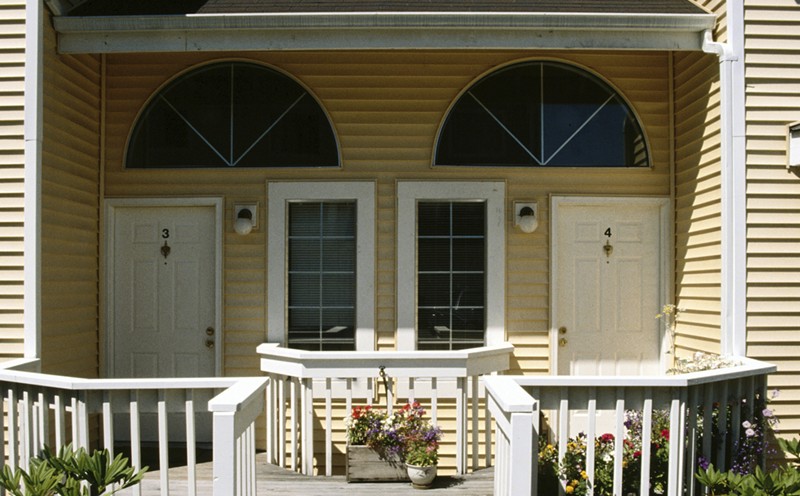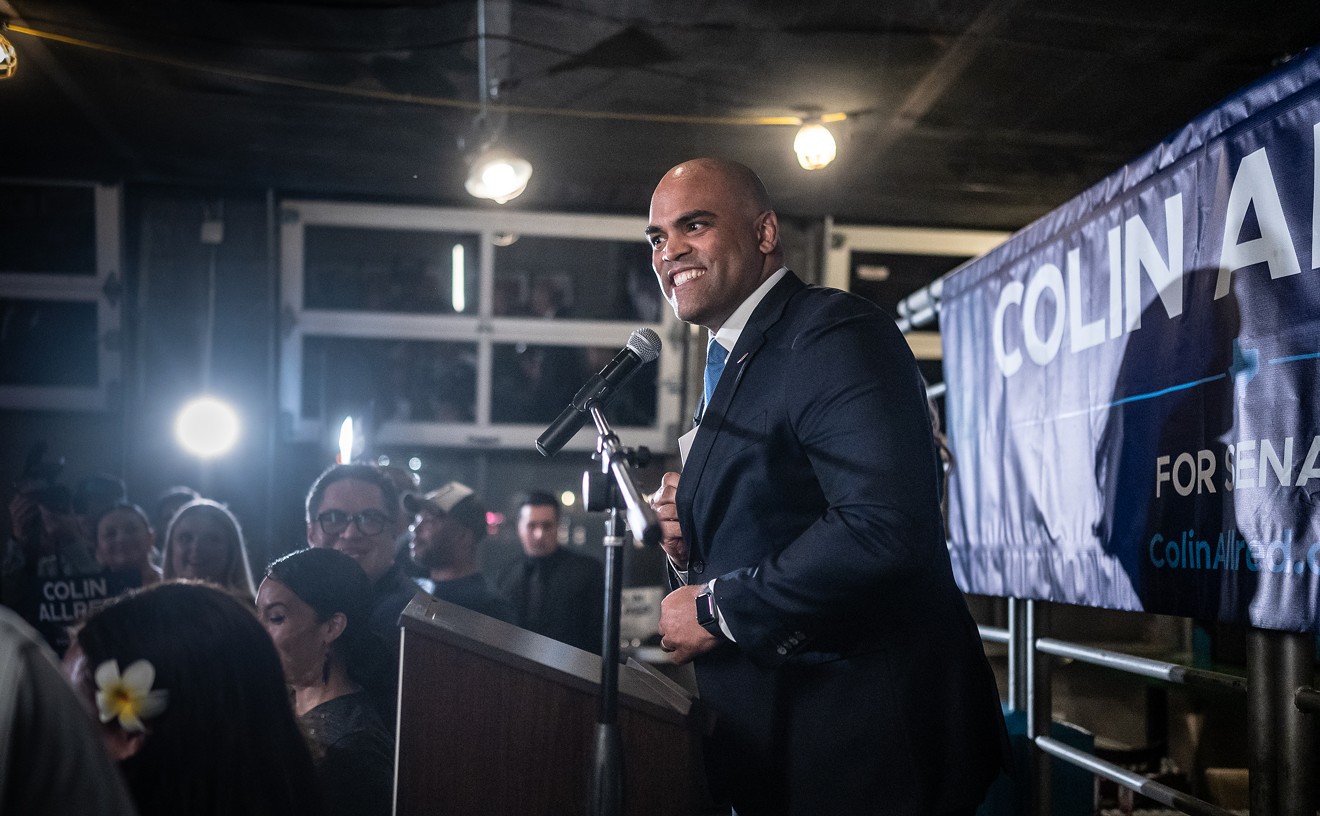The first discussion about all of this took place at a special called meeting of the Housing and Homelessness Solutions Committee yesterday.
City Council member Chad West authored a memo that prompted the meeting. Jaime Resendez, Jaynie Schultz, Paul Blackmon and Adam Bazaldua were the other council members who signed the memo. West sits on the committee but did not attend the meeting.
The idea is to use available land to create more housing options within the city. Andrea Gilles, interim director of the Planning and Urban Design Department, and Andreea Udrea, the assistant director of the department, were both there to explain what such a change could look like in different ways.
The city could allow accessory dwelling units and duplexes "by right" on any lot, and allow tri- and fourplexes based on certain criteria. "By right" refers to a property owner's use of property in ways consistent with what is permissible in a given zoning district.
The change could also create something called a floating-base zoning district for small multiplexes, which could include attached, stacked and detached small-scale homes. The city could also look at reducing minimum lot sizes in single-family neighborhoods to allow for more density.
Several Dallas residents turned out to the meeting to share their thoughts on allowing more density in single-family neighborhoods. They all opposed the idea.
Ed Zara, a Dallas resident, said reducing the minimum lot size and allowing triplexes and fourplexes in single-family neighborhoods will “destroy the quality of life we signed up for and expected the city to protect when we made the biggest investment in our life.”
Greg Estelle, a District 9 resident, said single-family zoning isn’t contributing to the housing shortage in Dallas, and that reducing minimum lot sizes and allowing multi-family dwellings will only serve developers. “Too much of this unproven concept is in the hands of developers whose interests are more financial than altruistic,” Estelle said.“I believe in neighborhood self-determination.” – Dallas City Council member Jesse Moreno
tweet this
Some see allowing more density as a way to address affordability in the city. Others aren’t so convinced.
Jack Cox, a District 11 resident, said the discussion was about the possibility of eliminating single-family zoning in Dallas, and that there are probably more targeted, less radical and less destructive ways to beef up affordable housing in the city. He suggested encouraging the construction of housing on land zoned for commercial, mixed-use, multi-family or industrial uses. He said the city could also establish land banks, provide financial incentives to builders and use housing vouchers to address affordable housing. “The other workable solutions will not generate the massive voter opposition to zoning change proposals that is inevitable,” he said.
Another speaker called the idea of reducing minimum lot sizes and allowing more density on single-family lots by right “a scam on property owners.”
Anga Sanders, a District 3 resident, said she was there to ask the committee to stop this “blatant attempt to destroy our single-family neighborhoods.”
The remarks from residents mirror many of the thoughts that neighborhood activists have offered over the past few years in the effort to eliminate short-term rentals from websites such as Airbnb and VRBO from single-family neighborhoods. Several City Council members on and off the committee were clear in their opposition to the idea as well.
Dallas City Council member Cara Mendelsohn, vice chair of the committee, said that in meetings about Forward Dallas, a plan to determine what land can be used for in the city, plenty of residents have said they don’t want triplexes and fourplexes in their single-family neighborhoods. “They don’t actually want to have multifamily no matter what it looks like in an established single-family neighborhood,” Mendelsohn told Gilles and Udrea.
She asked if this is just going to end single-family zoning. Gilles said she didn’t agree with that and stopped to remind everyone that this meeting was just the start of a very long discussion. “This is step one,” Gilles said.
Mendelsohn continued to press Gilles and Udrea on the details. “You’re saying that a person could no longer purchase a home in a single-family neighborhood and count on that remaining single-family because any one of their neighbors could then make this into a fourplex by right,” Mendelsohn said. “So, they actually don’t get to choose a single-family neighborhood any more. You’re actually destroying that option for people.”
“I’m not saying that,” Gilles responded. “I’m saying that is up for a conversation about how we handle that as a city. As a city, how do we want to handle these questions moving forward?”
“But you did say you’re laying the groundwork for this and that you’ve been laying the groundwork for this, and I’m going to tell you, I think you’re way off base,” Mendelsohn said.
Dallas City Council member Gay Donnell Willis said she frequently hears from residents that their kids or grandkids can’t find an affordable place to live in the city. “I just think that’s wrong. We know we need more missing middle housing. We need duplexes, triplexes, fourplexes, townhouses, row houses, garden homes. We need all of that,” Willis said. “I hear this from people who live in single-family neighborhoods.” But, she said a one-size-fits-all solution wasn’t the way forward.
Council member Jesse Moreno, who chairs the committee, also defended single-family neighborhoods. “By right is a big red flag to me and a nonstarter,” he said. “I believe in neighborhood self-determination.” Moreno said he supports density but that it needs to be in the right place. “This cannot be a blanket approach,” he said.“Single-family zoning needs to be protected by all means necessary.” – Dallas City Council member Carolyn King Arnold
tweet this
Council member Tennell Atkins said all of his residents are against the change. Atkins said this change hasn’t been discussed at length during talks about Forward Dallas and that he thinks the whole discussion is premature. “I think right now we’re getting the cart before the horse,” he said.
Carolyn King Arnold, council member for District 4, also opposed allowing more density in single-family neighborhoods. She said maybe such a change could work for new neighborhoods, but it won’t work for established ones. “I don’t want us to continue down the road, council members, of attacking established single-family homes that are protected by zoning that the city put in place,” she said. “Single-family zoning needs to be protected by all means necessary.”
Paul Ridley, council member for District 14, said he agrees that there needs to be more housing and housing options in the city. “But, my agreement ends with the proposition that all neighborhoods should share in accommodating additional housing needs,” Ridley said. He said there’s a need for duplexes, triplexes and fourplexes. The question is where they should go. He doesn’t think they’re appropriate for single-family neighborhoods.
Council member for District 7, Adam Bazaldua, seemed most open to the discussion.
Bazaldua said he grew up in a duplex next to a bunch of single-family residents. “I think I had a normal childhood,” he said. His mom grew up in an apartment, and she’s done just fine. “The NIMBY tone of this meeting is just out of the roof,” Bazaldua said.
Indeed, the tone of the discussion with city staff became a bit harsh at times. Bazaldua said it wasn’t fair to treat city staff like this was their idea when council members asked for the conversation to be had.
He went so far as to suggest the meeting was a dog-and-pony show.
"Scheduling a special called meeting knowing the author of the memo wasn’t even available ahead of time, to me, is disingenuous,” Bazaldua said. “I think the fact that Chairman West is not a part of this conversation speaks volumes to the validity we’re trying to give to actually having a conversation. This is clearly an attempt to stifle the democratic process that we have in our city.”
As Gilles noted, Tuesday’s meeting was just the start of a very long conversation. If such changes were to occur in the city, they'd first have to make it through Dallas' Zoning Ordinance Advisory Committee, the City Plan Commission and City Council.
We reached out to Moreno to ask if the meeting was scheduled knowing West would not be able to attend. Moreno said it was his understanding that West would be joining the meeting virtually.
Asked how he thought the meeting went, Moreno told the Observer he felt fortunate that so many council members turned out, even those who aren’t on the committee. “I think that everyone agrees, including myself, that we do need to have areas that have dense populations, that have dense zoning,” Moreno said after the meeting. “It just cannot be across the board when we still have so much land available to grow, especially in the southern sector.
“Right now, I think the clear message from council was that this is too fast," he added. "It needs to slow down and we need to have true community engagement and that communication needs to be flowing in every which direction."












